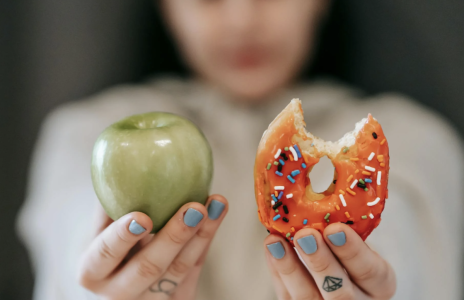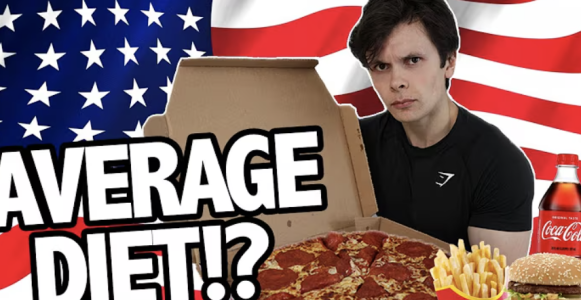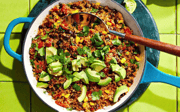The surprising link between your personality and food cravings
By
Veronica E.
- Replies 0
Disclaimer: The information provided in this article is for educational purposes only and is not intended as a substitute for professional medical advice, diagnosis, or treatment. Always consult your physician or other qualified healthcare providers with any questions you may have regarding a medical condition or before making any changes to your health regimen.
Do you find it hard to stop at just one cookie?
Do you or someone you love tend to snack even when you're not hungry?
It might not be about willpower alone.
According to researchers, our brains—and even our personalities—may play a bigger role than we think when it comes to food cravings.
A growing body of science is uncovering how ultra-processed foods interact with individual traits like reward sensitivity, making some people more vulnerable to overeating than others.

Scientists use the term “food reward drive” to describe how strongly someone responds to the pleasure of eating—especially when it comes to high-sugar, high-fat snacks.
People with a high food reward drive often feel hungrier, eat more quickly, and have trouble feeling full.
It’s not just about preference; it’s how their brains are wired.
These individuals tend to crave foods that trigger dopamine—the same chemical that gives us a boost when we win a game or hear good news.
Ultra-processed foods are designed to be irresistible.
Think cookies, chips, fast food, and sugary cereals.
These products don’t just taste good—they’re engineered to light up your brain’s pleasure centers.
They also activate the brain’s opioid system, which can reduce feelings of fullness and drive us to eat more.
The combination makes it incredibly difficult to resist over time.
Researchers have developed the Reward-based Eating Drive (RED) scale to assess how strongly someone experiences food reward drive.
People who score high tend to struggle more with overeating, experience weight fluctuations, and face a higher risk of obesity.
Genetics also play a part.
Some people are born with fewer dopamine receptors, which means they need more stimulation—like richer or sweeter foods—to feel satisfied.
And early experiences, like receiving candy as a reward, can set patterns that last a lifetime.
In today’s world, avoiding processed foods can feel nearly impossible.
They make up about 70% of the average American’s daily calories.
These foods are convenient and cheap, but they’re also linked to serious health risks, including diabetes, heart disease, and even depression.
Children with high food reward drive are especially vulnerable, and studies show they have a harder time regulating their intake when surrounded by snacks.
With childhood obesity on the rise, this is a growing concern.

Dr. Kerri Boutelle from UC San Diego has seen firsthand how food reward drive varies—even among siblings.
In one case, a child with low drive easily stopped after a few bites of ice cream, while their sibling quickly finished both their own and the leftovers.
This isn’t just about discipline—it’s about biology.
If this sounds familiar, don’t worry. Experts recommend several simple strategies:
Recognizing your food reward drive isn’t about blaming yourself.
It’s a chance to understand how your brain reacts to food so you can make more informed decisions.
Whether it’s rethinking your grocery list or offering healthier options to your grandkids, small changes can make a big difference.
Read next: Are you iron-deficient? Discover 7 simple diet changes to boost your iron levels instantly!

Have you noticed that you or a loved one has a stronger response to processed snacks? Do you have tricks for managing cravings or favorite healthy swaps? We’d love to hear your story—leave a comment and help others in our GrayVine community.
Do you find it hard to stop at just one cookie?
Do you or someone you love tend to snack even when you're not hungry?
It might not be about willpower alone.
According to researchers, our brains—and even our personalities—may play a bigger role than we think when it comes to food cravings.
A growing body of science is uncovering how ultra-processed foods interact with individual traits like reward sensitivity, making some people more vulnerable to overeating than others.

Some people may be more biologically wired to crave ultra-processed foods than others. Image Source: Pexels / Andres Ayrton.
What is food reward drive?
Scientists use the term “food reward drive” to describe how strongly someone responds to the pleasure of eating—especially when it comes to high-sugar, high-fat snacks.
People with a high food reward drive often feel hungrier, eat more quickly, and have trouble feeling full.
It’s not just about preference; it’s how their brains are wired.
These individuals tend to crave foods that trigger dopamine—the same chemical that gives us a boost when we win a game or hear good news.
Also read: Craving chips? Try these delicious, healthy snacks instead
Why processed foods are especially powerful
Ultra-processed foods are designed to be irresistible.
Think cookies, chips, fast food, and sugary cereals.
These products don’t just taste good—they’re engineered to light up your brain’s pleasure centers.
They also activate the brain’s opioid system, which can reduce feelings of fullness and drive us to eat more.
The combination makes it incredibly difficult to resist over time.
Also read: Would you travel for your favorite snack? You’re not alone—here’s how far some Americans go to satisfy a craving
Could you be more at risk?
Researchers have developed the Reward-based Eating Drive (RED) scale to assess how strongly someone experiences food reward drive.
People who score high tend to struggle more with overeating, experience weight fluctuations, and face a higher risk of obesity.
Genetics also play a part.
Some people are born with fewer dopamine receptors, which means they need more stimulation—like richer or sweeter foods—to feel satisfied.
And early experiences, like receiving candy as a reward, can set patterns that last a lifetime.
Also read: Craving Thin Mints? Discover the secret to getting your hands on Girl Scout Cookies today!
Our food environment doesn’t help
In today’s world, avoiding processed foods can feel nearly impossible.
They make up about 70% of the average American’s daily calories.
These foods are convenient and cheap, but they’re also linked to serious health risks, including diabetes, heart disease, and even depression.
Children with high food reward drive are especially vulnerable, and studies show they have a harder time regulating their intake when surrounded by snacks.
With childhood obesity on the rise, this is a growing concern.

Many Americans consume diets high in ultra-processed foods like pizza, fries, soda, and fast food. Image Source: YouTube / Will Tennyson.
Also read: The secret to managing cravings? Try this simple mindfulness technique
One family, two different responses
Dr. Kerri Boutelle from UC San Diego has seen firsthand how food reward drive varies—even among siblings.
In one case, a child with low drive easily stopped after a few bites of ice cream, while their sibling quickly finished both their own and the leftovers.
This isn’t just about discipline—it’s about biology.
Also read: More dangerous than fentanyl? What new research says about your diet
What you can do: Five practical tips
If this sounds familiar, don’t worry. Experts recommend several simple strategies:
- Keep ultra-processed foods out of reach: The fewer you have around, the easier it is to avoid them.
- Save treats for special moments: Make indulgent foods occasional, not everyday.
- Focus on whole foods: Stock up on fruits, vegetables, whole grains, and lean protein.
- Manage emotional eating: Try alternatives like calling a friend or going for a walk when you're stressed.
- Be a healthy role model: Your choices shape the habits of children and grandchildren around you.
Recognizing your food reward drive isn’t about blaming yourself.
It’s a chance to understand how your brain reacts to food so you can make more informed decisions.
Whether it’s rethinking your grocery list or offering healthier options to your grandkids, small changes can make a big difference.
Read next: Are you iron-deficient? Discover 7 simple diet changes to boost your iron levels instantly!
Key Takeaways
- Some people are more biologically sensitive to the effects of ultra-processed foods, leading to stronger cravings and overeating.
- This sensitivity—called food reward drive—may be shaped by brain chemistry, genetics, and childhood habits.
- Ultra-processed foods trigger dopamine and opioid responses, which dull fullness and drive continued eating.
- Experts recommend keeping processed snacks out of the home and focusing on whole foods to reduce risk, especially for children.
Have you noticed that you or a loved one has a stronger response to processed snacks? Do you have tricks for managing cravings or favorite healthy swaps? We’d love to hear your story—leave a comment and help others in our GrayVine community.






